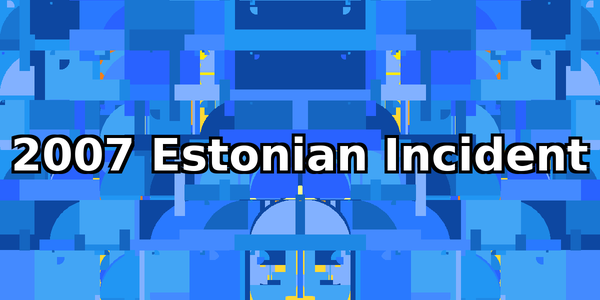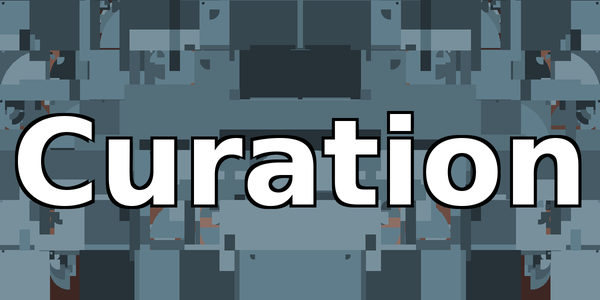m7c1
Much by way of discourse, some by way of advice; security from Clausewitz to Fancy Bear.

In 1970, the US federal government passed the Fair Credit Reporting Act (FCRA). The act can be seen as a early reaction to an emerging appreciation for the power of mechanized (and then digitized) data collection and analysis. The FCRA represents one of the earliest legal actions taken in realm of privacy and security. Here's a brief look at the the event, and the climate within which it took place.

On the night of April 27th 2007, a statue was removed from a busy intersection in the middle of the Estonian capital of Tallinn, and relocated to a military cemetery a short distance away. Beneath the statue were the graves of a number of Red Army soldiers who perished in World War II. The incident touched off several days of riots in Tallinn, and sparked what later became known as 'Cyber War I’.[1] Though for all intents and purposes the relocation of the statue was a classically political move, several factors specific to Estonia and the era made it unique. We’ll first consider the classical elements, and then unique features, and finally interpret it in terms of securitization.

On December 23rd, 2015, nearly a quarter-million Ukrainians unexpectedly lost power.226 In the aftermath of what is thought to be the first wide-spread attack on power infrastructure, US investigators determined that the same BlackEnergy malware that was involved in the Ukrainian disruption was present in “numerous industrial control systems (ICSs) environments”in the US.227 It appeared to US cyber officials that the“sophisticated malware campaign” responsible for the software’s presence had been running since 2011.228 David J. Weinstein, who worked at the US Cyber Command from 2010 to 2013 and was quoted in a recent NY Times article on developments in offensive US cyber activities, likened the 2015 Ukrainian event to crossing the Rubicon.229, 230 In invoking the solidification of Caesar’s power and accompanying death of the republic, Weinstein manages to at once suggest the seminal nature of an attack on power-infrastructure, and the difficulty inherent in identifying any single event as a beginning. The prosecution of a large-scale cyber campaign with potentially lethal capability, fatalistically supports the former suggestion.

The Internet has been called many things, from “a series to tubes”1 to “a vast uncataloged library”2, from the information superhighway to the new “opiate of the masses”3. What now enters homes through a wire, physically indistinct from power and other kinds of services, at once delivers base entertainment and provides the means for millions of livelihoods. It has grown ubiquitous very fast; our daily lives likely involve some very alien practices and behaviors if viewed through the eyes of someone living 50 years ago, and yet the precursors of today’s Internet were alive and well in 1970.

Robert Tappan Morris, the son of Bell Labs researcher and National Security Agency (NSA) computer specialist and cryptographer Robert ‘Bob’ Morris, was born in November of 1965 in rural New Jersey. Bob and his wife Anne were pragmatists, growing their own food when it became expensive, preferring to use hand-me-down appliances and repair them instead of purchasing new ones, and accepting television into the living room after determining their then six year-old daughter to be “mass-culture ‘illiterate’” (Hafner & Markoff, 1995, p.272). Young Robert read voraciously, finishing the complete Lord of the Rings trilogy in third grade, and distinguished himself in school: a slump in grades correctly attributed to boredom was remedied by having him skip fifth grade entirely. Robert continued to excel academically, and soon became interested in his father’s line of work, especially what we might now term ‘systems security.’ As a teenager, his study of the Unix operating system lead him to uncover a flaw that allowed privileged access to one machine to provide privileged access to any networked machine. After exploring a little, he told the Bell scientists about his discovery and they fixed the vulnerability.
Quick Links
Search
Tags
Popular Posts
 Buffer Overflow 0x01
Buffer Overflow 0x01
A step by step buffer overflow tutorial. We'll cover why buffer overflows exist, how they can be abused to subvert flow of control, and step though an example exploitation in Linux using GDB. Tor and "Invisibility"
Tor and "Invisibility"
Misconstruing Tor as a cloak of invisibility is dangerous. Curation
Curation
How can we continue to protect ourselves in an era defined by ubiquitous data collection? Curation! (Ab)using Tor to circumvent GDPR
(Ab)using Tor to circumvent GDPR
Utilize Tor to circumvent GDPR in Europe.